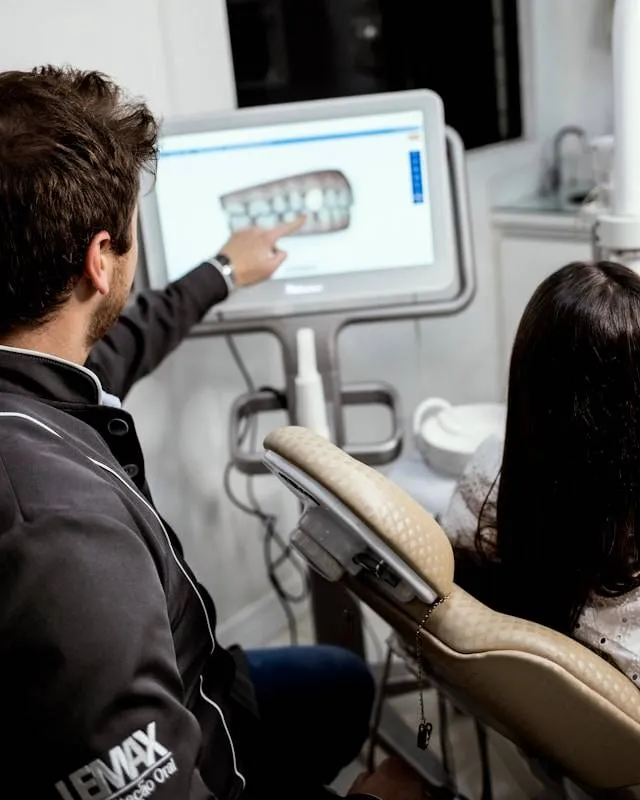1. Introduction to porcelain crowns
Porcelain veneers are a popular dental procedure to improve the appearance and function of your teeth. When you get a porcelain veneer, a thin layer of porcelain is placed on the surface of your natural teeth, improving the color, shape, and size of your teeth. Many people worry about "does porcelain veneers cause bad breath?" This article will answer that question and provide detailed information about the relationship between porcelain veneers and bad breath.
2. The relationship between porcelain crowns and bad breath
In fact, porcelain crowns do not directly cause bad breath. On the contrary, porcelain crowns often have a smoother surface than natural teeth, which helps reduce plaque and bacteria buildup, thereby helping to improve breath. However, in some cases, people with porcelain crowns may still experience bad breath due to other factors.
3. Causes of bad breath after porcelain crowns
Although porcelain crowns do not directly cause bad breath, there are a number of causes that can lead to this condition:
a) Poor oral hygiene: If porcelain teeth are not properly cared for, bacteria can build up and cause bad breath.
b) Gaps between porcelain teeth: If the porcelain teeth do not fit perfectly, small gaps can be created where food and bacteria accumulate.
c) Gingivitis: If the gums become irritated after porcelain crowns are placed, it can lead to gingivitis and bad breath.
d) Eating habits: Certain foods and drinks can cause bad breath, whether you have porcelain crowns or not.
e) Systemic diseases: Some diseases such as diabetes, liver disease, kidney disease can cause bad breath.

4. How to prevent bad breath when having porcelain crowns
To avoid bad breath after porcelain crowns, you should:
a) Maintain good oral hygiene: Brush your teeth at least twice a day and floss daily.
b) Use the right toothbrush: Choose a soft toothbrush to avoid damaging porcelain teeth and irritating the gums.
c) Mouthwash: Use alcohol-free mouthwash to reduce bacteria in the mouth.
d) Drink plenty of water: Helps increase saliva secretion, naturally cleaning the mouth.
e) Limit foods that cause odors: Avoid or limit foods such as garlic, onions, and coffee.
5. Take care of porcelain teeth properly to avoid bad breath
Proper care of porcelain teeth not only helps prolong the life of porcelain teeth but also prevents bad breath:
a) Brush your teeth properly: Use non-abrasive toothpaste and brush gently.
b) Use dental floss: Clean between teeth and below the gum line.
c) Avoid hard foods: Limit eating hard nuts and hard candies that can damage porcelain teeth.
d) Limit colored drinks: Coffee, tea, and red wine can stain porcelain teeth.
e) Regular dental check-ups: Professional dental check-ups and cleanings every 6 months.
6. Things to note when getting porcelain crowns to avoid bad breath
When deciding to get porcelain crowns, there are a few things you should keep in mind to reduce the risk of bad breath:
a) Choose an experienced dentist: A good dentist will ensure that the porcelain teeth fit perfectly, reducing the risk of food and bacteria buildup.
b) Choose the right type of porcelain teeth: Some types of porcelain teeth have better antibacterial properties.
c) Follow post-treatment instructions: The dentist will provide instructions for porcelain tooth care, please follow them strictly.
d) Treat dental problems before porcelain crowns: Make sure there is no gum disease or tooth decay before porcelain crowns.
e) Inform your dentist if you have a history of bad breath: This helps your dentist take appropriate preventive measures.
7. Methods to overcome bad breath after porcelain crowns
If you experience bad breath after porcelain veneers, there are a few methods that can help fix it:
a) Use mouthwash: Choose one that is alcohol-free and contains chlorine dioxide or zinc.
b) Tongue scraping: Use a tongue scraper to remove bacteria that accumulate on the tongue.
c) Eat lots of green vegetables and fruits: Helps increase saliva secretion and balance pH in the mouth.
d) Chew sugar-free gum: Stimulates saliva production, helping to clean the mouth naturally.
e) Use products containing probiotics: Helps balance the bacterial flora in the mouth.

8. When to see a dentist after porcelain crowns
You should see your dentist if:
a) Bad breath that persists and does not improve after applying self-care measures.
b) Feeling pain or discomfort in the porcelain tooth area.
c) Notice that the porcelain tooth is loose or chipped.
d) Gums around porcelain teeth are swollen, red or bleeding.
e) Feel the porcelain teeth do not fit when biting.
9. Frequently asked questions about porcelain crowns and bad breath
Q: Does porcelain crowns reduce bad breath?
A: In many cases, porcelain crowns can help reduce bad breath if the underlying cause is a damaged tooth or a cavity. However, maintaining good oral hygiene is still the most important factor.
Q: Can whitening toothpaste be used on porcelain teeth?
A: Do not use whitening toothpaste on porcelain teeth as it can scratch the surface of the porcelain teeth. Use regular toothpaste that does not contain abrasives.
Q: How to distinguish between bad breath caused by porcelain teeth and other causes?
A: If bad breath appears suddenly after porcelain crowns are placed and is accompanied by symptoms such as pain or discomfort in the porcelain crown area, it may be due to a problem with the porcelain crown. In other cases, bad breath may be due to other causes such as poor hygiene or systemic illness.
Q: Do I need to change my diet after getting porcelain veneers to avoid bad breath?
A: There is no need to completely change your diet, but you should limit foods that cause odors such as garlic, onions and dark colored drinks such as coffee and black tea. At the same time, increase your intake of green vegetables and fruits rich in vitamin C to improve your breath.
10. Conclusion
Porcelain veneers do not directly cause bad breath. On the contrary, if done properly and cared for properly, porcelain veneers can help improve breath. However, poor oral hygiene, improper veneer technique, or other factors can lead to bad breath after porcelain veneers.
To maintain fresh breath and good oral health after porcelain crowns, pay attention to daily oral hygiene, choose an experienced dentist, and follow the aftercare instructions. If you experience persistent bad breath after porcelain crowns, do not hesitate to consult your dentist for timely advice and treatment.
If you have any questions about porcelain crowns or are worried about bad breath, do not hesitate to use the 'ASK A QUESTION' form on our website. Sakura doctors will be happy to answer them for free.
You can also test your dental knowledge with the 'DENTAL QUIZ' tool on the website. This is a fun way to learn more about proper dental care.
Remember, a healthy and confident smile starts with daily dental care and choosing the right treatment.





